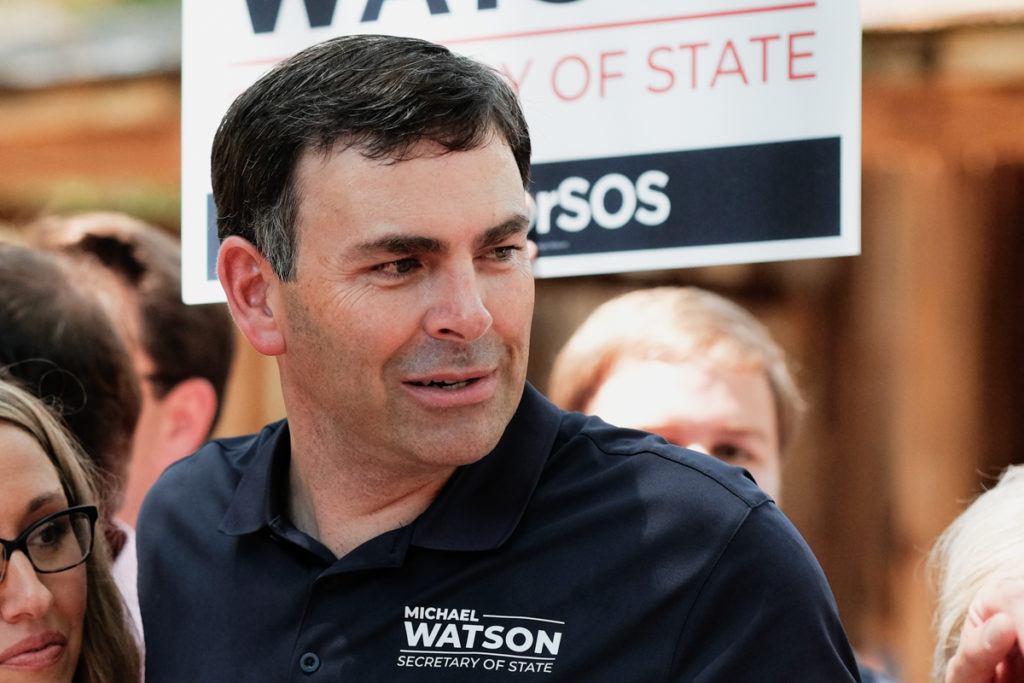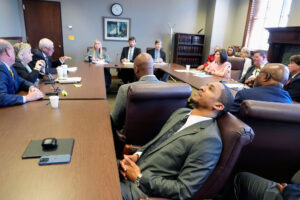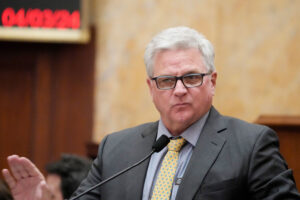Mississippians who vote absentee will have more protections to ensure election officials count their ballots this year. Mississippi Secretary of State Michael Watson made changes to the process after resident plaintiffs and civil rights groups filed a lawsuit, which the plaintiffs dismissed today in light of a new “curing” process.
When a voter fills out an absentee ballot, either by mail or by early in-person voting at their local circuit clerk’s office, they must sign the ballot. When counting ballots, election officials check the signature on the ballot to see if it matches the voter’s signature on file.
In the past, Mississippi’s’s “ballot cure prohibition” meant that the state did not notify voters when their signatures did not match; officials would simply reject an otherwise complete and valid absentee ballot without notifying the voter or giving them a chance to fix it. In response to the lawsuit, though, Watson changed that to allow voters a chance to fix their ballots.
“We are thrilled that our litigation led to a process that is fairer to absentee voters in Mississippi, and we are working with our local partners to help voters vote as safely as possible in whatever manner they select from now until Election Day—whether that’s absentee by mail, absentee in person, curbside, or in person on Election Day,” Caren Short, a senior staff attorney for the Southern Poverty Law Center, said in a press statement today.
Under Watson’s new rule, though, which he adopted in response to the lawsuit, election officials must notify voters within one business day either by mail, email or fax when there is a signature match issue in order to give them an opportunity to “cure” or correct it with an “Absentee Cure Form.” The State will allow voters up to 10 calendar days after the election to correct their ballots.
Short recommended that voters include their “best phone numbers and email address if they have one” on their absentee ballot to ensure that election officials will be able to reach them if a signature problem crops up.
The other organizations involved in the now-dismissed litigation also praised the decision, including the Mississippi NAACP, the League of Women Voters of the United States and the Lawyers’ Committee for Civil Rights Under Law.
“Just because a record number of voters in Mississippi will vote this year does not mean there needs to be a record number of disenfranchised voters,” Jennifer Nwachukwu, an attorney with the Lawyers’ Committee, said in a joint statement with the other organizations today.
Curbside Voting
The groups also praised Watson’s recent decision, which the Mississippi Free Press reported previously, to ensure voters who may have been exposed to COVID-19 or who are experiencing COVID-19 symptoms can vote curbside from their car outside their polling precinct on Election Day.
“It is essential that democracy is available to all Mississippians by being able to participate in elections while protecting the public’s health. More importantly, we will continue to work with our partners to fight against voter suppression tactics aimed at limiting voter participation,” Mississippi NAACP Executive Director Corey Wiggins said.
Christy Wheeler, the co-president of the League of Women Voters, said curbside voting “will alleviate some of the long lines that voters encounter at polling locations and will help poll workers conduct this election more safely.”
Watson’s rules, though, imply that curbside voting could result in some delays for people standing in line to vote. When a voter casts a ballot curbside, the guidelines say, poll managers “must carry the poll book, the receipt book, and a ballot or voting device to the voter’s motor vehicle or an outside area,” the rules say. But Watson’s guidance suggests that curbside voting could cause delays at polling places and longer wait times for other voters.
“If there are less than three (3) poll managers immediately present within the polling place conducting an election, and a voter wishing to curbside vote arrives, all voting at the polls shall stop until the poll managers conducting the curbside voting return to the polls,” When voting is occurring within the polling places, there shall be at least three (3) poll managers immediately present to conduct the election. Until a minimum of three (3) poll managers are present, the remaining poll manager or poll managers shall ensure the security of the ballot box, the voting devices, and any ballots and election materials.”
Despite the addition of curbside voting and vote curing, Mississippi has done less to make voting more accessible during the COVID-19 pandemic than any state. Alabama, for instance, opted for no-excuse necessary absentee voting, while many other states made vote-by-mail available for all.
Mississippi is also not requiring voters to wear masks when they enter the poll places, though some other social-distancing measures will be in place. In some instances, Watson’s guidance says that poll workers may even ask voters to momentarily remove their mask to ensure they match their legal photo ID, which all Mississippians must show when voting.
Voting Information
Mississippi voters may vote absentee in-person at their local circuit clerk’s office until 5 p.m. on Oct. 31. Those voting by mail have until Election Day, Nov. 3, to mail their ballot. The ballot must be postmarked by Nov. 3 and arrive within five days of the election in order for their vote to count.
Polls are open on Election Day, Nov. 3, from 7 a.m. until 7 p.m. More information on voting is available at sos.ms.gov/vote.










